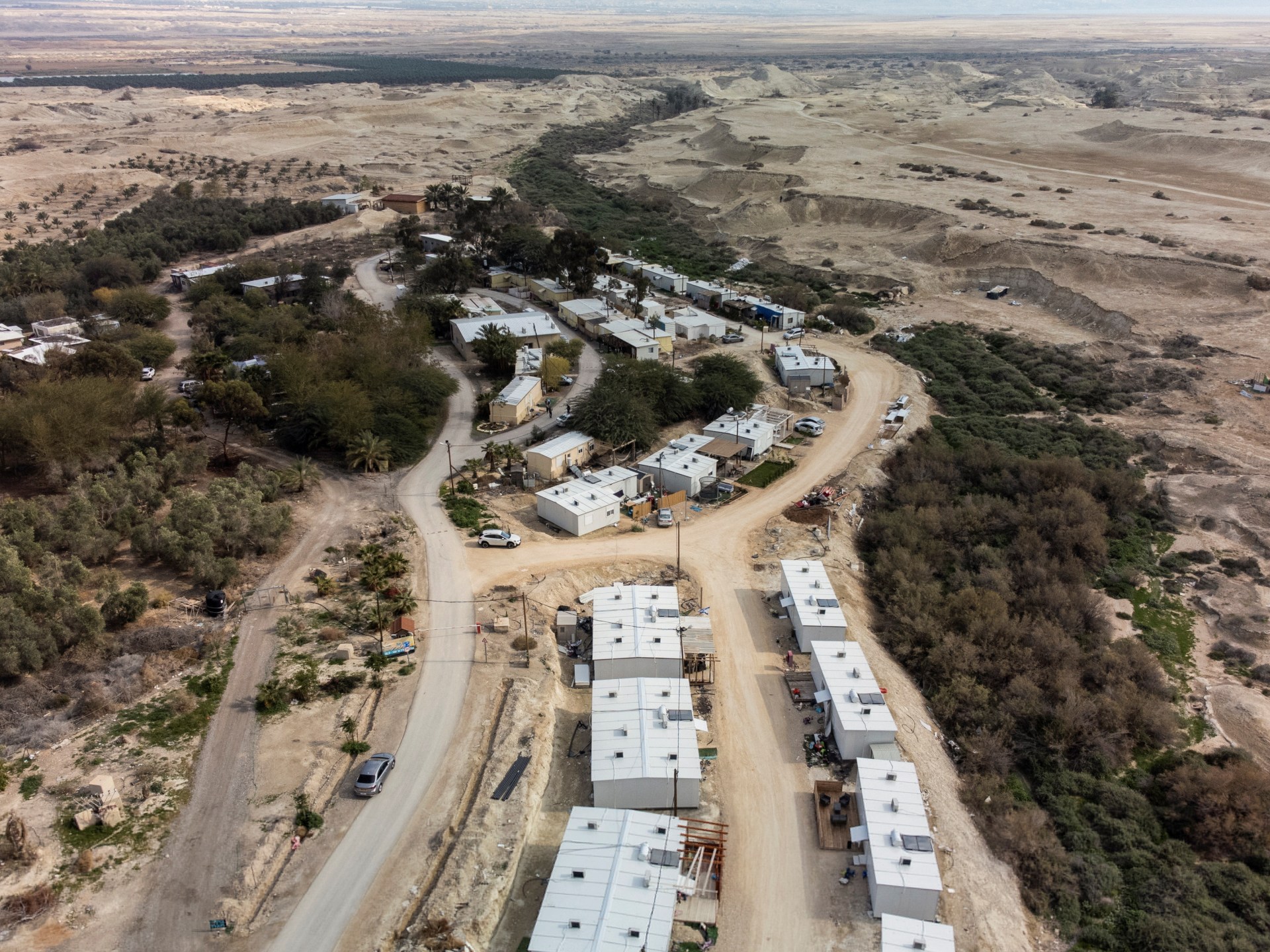Washington -
Reports indicate that US President Joe Biden's administration has avoided a Palestinian-Israeli diplomatic confrontation at the United Nations Security Council.
This prompted it to pressure the Palestinian Authority to suspend its efforts to hold a Security Council vote on Israeli settlement plans in the occupied West Bank.
It was expected that a draft resolution would be discussed and voted on today, Monday, at the request of the United Arab Emirates - which enjoys temporary membership in the Security Council for the years 2022 and 2023, in coordination with the Palestinian side. However, Reuters indicated that the UAE informed the Security Council that it would not call for a vote. Today, Monday, a resolution was passed calling on Israel to immediately stop settlement activities in the occupied territories.
The draft resolution indicated that "Israel's establishment of settlements in the Palestinian territories occupied since 1967, including East Jerusalem, has no legal validity and constitutes a flagrant violation under international law."
The draft also condemned "all annexation attempts, including the decisions and actions taken by Israel with regard to settlements, as well as outposts," and demanded its immediate retraction.
The draft resolution condemned the Israeli settlement steps and demanded an immediate retreat (Al-Jazeera)
Avoid embarrassment
The American success in pressuring the Palestinian Authority to withdraw the vote spared the Biden administration an embarrassing situation that would have had to decide whether to use its veto power to support Israel, which it has done repeatedly in the past, or to abstain from voting and let the resolution pass.
The Biden administration opposes the positions of the Israeli government, which many in Washington consider one of the most extremist governments in Israel's history, including its policies towards settlements and the future of the two-state solution.
The Palestinians were pressing for a vote today, Monday, on a resolution condemning Israeli settlement plans, after the new government in Israel announced its intention to legalize 9 settlement outposts in the West Bank, in addition to approving the construction of 10,000 new housing units.
Reports indicated that Washington succeeded in reaching understandings between the Palestinian and Israeli sides, and as part of the understandings, Israel agreed to "temporarily" suspend unilateral measures in the West Bank, including new announcements regarding settlement construction for several months, according to Israeli officials.
Israel also agreed to suspend demolitions of Palestinian homes and evictions for a few months, and agreed to reduce the number of military raids it carries out inside Palestinian cities.
According to Axios, Israel has agreed to several economic steps that would increase Palestinian tax revenues by more than $60 million annually.
The last visit of Palestinian President Mahmoud Abbas to the White House was in 2017 (Reuters)
A visit to the White House
Reports indicated that the White House was committed to inviting Palestinian President Mahmoud Abbas to hold a meeting with US President Joe Biden at the White House during the next year, and Washington was committed to submitting an official request to the Israeli government to reopen the US consulate in Jerusalem.
On the other hand, the Palestinians agreed to start implementing a security plan previously put forward by the US security coordinator, General Michael Finzel, to restore Palestinian Authority control over the cities of Jenin and Nablus in the West Bank. The Palestinian side also agreed to start talks on resuming security coordination with Israel, which was suspended several weeks ago. .
An official in the Israeli prime minister's office rejected news of the understandings. "There are no understandings. We finished all the construction plans last week, and we had no intention of convening the committee to approve new plans in the next three months anyway," he said.
Blinken (left) led diplomatic efforts to avoid presenting the resolution to the Security Council (Al-Jazeera)
American diplomatic effort
US Secretary of State Tony Blinken led diplomatic efforts to avoid introducing a resolution condemning Israeli settlements to the Security Council.
Blinken's meeting with his Emirati counterpart, Sheikh Abdullah bin Zayed, marked the beginning of these secret efforts, especially since the UAE was expected to present the draft resolution for a vote.
On the other hand, two separate statements were issued by the US State Department on Saturday evening, detailing two calls by Minister Blinken with both Palestinian President Mahmoud Abbas and Israeli Prime Minister Benjamin Netanyahu.
The State Department statement stated that Blinken spoke to Abbas "to reaffirm the United States' commitment to a negotiated two-state solution, and its opposition to policies that pose a threat to the viability of this solution." Secretary Blinken stressed the urgent need for Israelis and Palestinians to take steps to restore calm.
Another statement by the ministry about Blinken and Netanyahu's conversation carried the same content as the previous statement, in addition to Blinken and Netanyahu's discussion of "broader regional challenges, including the threats posed by Iran, and Secretary Blinken also stressed our unwavering commitment to Israel's security."
McCarthy calls on Biden to veto the draft resolution (Al-Jazeera)
Congress intervened
On February 17, US House Speaker Kevin McCarthy sent a message to President Biden asking him to direct US Ambassador to the United Nations Linda Thomas Greenfield to oppose any anti-Israel resolution put to a vote before the Security Council, and to use the right to veto it, with regard to the Council session. Security that was to be held on Monday.
McCarthy reminded President Biden that for decades, Republican and Democratic presidents have taken the position that US policy is to oppose and veto unilateral or anti-Israel resolutions in the Security Council.
McCarthy also reminded Biden that when former President Barack Obama deviated from that precedent in 2016, and abstained from voting on Security Council Resolution No. UN 2334 undermines the prospect of Israelis and Palestinians resuming productive, direct negotiations.
McCarthy noted that the 2016 abstention did not contribute to any progress in the Israeli-Palestinian negotiations.

